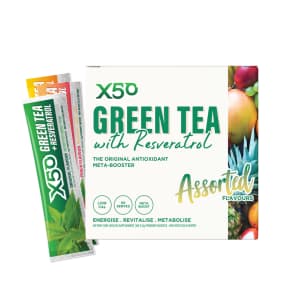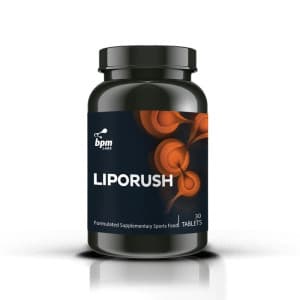What's the hype with Green Tea? PCOS, Weight loss and beyond.
So why the big fuss about a humble cup of tea? Without a doubt, the weather has turned in Australia from sunny beach times to snuggling under the doona with a movie and a hot cuppa. What if that delicious warm tea could be therapeutic too? A simple cup of green tea a few times daily can transform health or help with progress towards your goals. Green tea can now be found in a concentrated supplement form, adding extra medicinal benefits.
Green tea has been grown and cultivated for centuries, originally produced in China and Japan as part of their tradition and health benefits. Made from the Camellia Sinensis plant, Green tea comes from less oxidised leaves, simply partially heated. Nutrients like chlorophyll, antioxidants and polyphenols are in higher concentration in Green tea compared to the black tea variety. If you think of fruit and vegetables turning brown after being exposed to oxygen, you understand why black tea has its darker colour.
Generally, an 8 oz (235 mL) cup of Green tea yields between 15-45 mg of caffeine. This amount varies depending on how long the tea has been left to steep, as the longer it is left, the greater the caffeine concentration. Green tea extract is an easy and convenient way to measure intake, especially if a hot cuppa is not your thing. Green tea has this magical ingredient called L-Theanine, a unique amino acid renowned for promoting relaxation and stress relief. This, along with the lower caffeine content, gives Green tea a gentle, energising feel, minus the crash or jittery feeling. L-Theanine is unique because it relaxes the mind without any drowsiness, allowing us to feel alert yet focused on our task.
Why Green tea for weight loss?
It would be easy to write off the Green tea and weight loss connection as merely another fad or a myth to make sales. Yet countless scientific studies show the subtle yet essential benefits of consuming Green tea when trying to lose weight. The latest science has shown us that the benefits aren't merely a short-term fix, but long-term weight management is improved with regular consumption of Green tea. It helps get us into a fat-burning state and keeps those kilos off.
The secret ingredient in Green tea is catechins, specifically EGCG (Epigallocatechin gallate), which is showing multiple health benefits in research. EGCG shows promise as an anti-inflammatory, reducing internal stressors and preventing diseases involving the heart and brain. The weight loss association comes from EGCG's ability to induce thermogenesis in humans when we burn calories to use as body heat. This may have happened to you after a cup of the green stuff! It's completely normal and part of a natural process. EGCG is also linked to an increase in our body's ability to oxidise fat and use it as fuel, mainly by the liver.
ECGC has been studied extensively on its own as a supplement and with a source of caffeine included. The results for fat loss were much higher in the groups taking caffeine, also related to even higher thermogenesis, fat oxidation and suppressed appetite. The caffeine and EGCG combination seems to be the most effective for keeping the munchies at bay, showing that taking Green tea as a whole extract or tea would be the best idea for body composition.
These studies were not done without alterations to the diet; Green tea isn't a magic bullet! A calorie-controlled diet for the first month, followed by a maintenance diet, was introduced for the successful participants of the studies. It is always best to seek the help of medical and nutrition professionals when drastically changing the diet.
Green tea catechins also showed promising signs of increasing activity in the Sympathetic Nervous System (SNS), helping us improve fat oxidisation and increase energy output. Free fatty acids were thought to be excreted faster as a way of preventing fat burning instead of storage. The combination of this with caffeine is thought to bring about results at a greater rate, with a higher chance of long-term success.
Green tea for Polycystic Ovarian Syndrome (PCOS)
Green tea has been studied widely to help ladies suffering from Polycystic Ovarian Syndrome, primarily with insulin resistance as a driver of the condition. PCOS is a hormonal condition common in women of reproductive age. Hormones tend to be out of whack with PCOS, and free testosterone can be high, alongside insulin. If the condition is unmanaged, PCOS sufferers can struggle with weight gain, infertility, insulin resistance, and acne.
Women who took Green tea daily and were struggling with PCOS and obesity were found to have an improvement in symptoms. A significant reduction in fasting insulin, free testosterone and weight loss was seen in the participants. More research may need to be done to determine the Green tea effect has on hormones like Luteinising Hormone (LH) and Follicle Stimulating Hormone (FSH) and fertility outcomes. Weight loss can be a concern for women suffering from PCOS, and those struggling to lose weight in the studies did experience positive changes in body composition after taking Green tea.
Conclusion
So how much Green tea should I have to help me with my weight loss and maintenance goals? Two cups daily can be sufficient, opting for the caffeinated version for the best results. The Green tea extract is more concentrated in a supplement, so the daily recommended dose is plenty. Green tea's subtle but powerful power is an easy addition to your weight loss regime in the long term. Green tea can be an excellent place to start for those wanting to maintain a healthy weight and blood sugar levels while boosting their antioxidants and general well-being.
References:
Rains et. al., 2016
Li et.al., 2018
Plantaga et. al., 2005
Tehrani et. al., 2017










